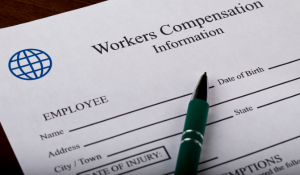Workers' compensation benefits are available to workers who are not able to work because of either...
A Quick Guide to Workers' Comp Insurance
Whether you’re a business owner or an employee, workers’ compensation is important to every company. Workers' compensation is an incredible program that provides financial support to employees who are injured on the job or become ill.
This program is crucial to most industries. Back in the day, workers who worked riskier jobs were offered no protection or support. If they got injured on duty, they had to bear the burden of the medical costs and, in many cases, ended up losing their careers.
Workers' protection is like having a safety net to protect you if anything goes wrong. While the program is widely known, many individuals still don't know about its basics. A lot of people have questions on their minds regarding who pays it and what workers' compensation covers.
If you're amongst these individuals, don't worry. This article covers all the fundamentals of workers' compensation and why it could be your lifeline in case anything goes wrong.
What is Workers’ Compensation?
In simple terms, worker's compensation acts as insurance that protects you when things go bad on the job. Workers are compensated with cash benefits and medical care if they're injured as a result of their jobs.
One thing to note is that the employer pays workers' compensation, so the employee does not have to worry about contributing to medical expenses. If you get injured, your employer will cover the medical expenses, and you may receive the lost income.
When a worker is injured, they will have to file a claim with the company. Some employers may require proof of the cause of the injury to release the compensation funds. A compensation board usually handles claims from workers if their employers refuse to provide the compensation.
Once your employer approves the cause of injury, you’ll have access to cash or medical benefits that will help you cover the bills. In some cases, employers may dispute the claim, so the case is passed to a compensation judge. There, the employee will have to fight their case.
However, that doesn't mean they won't receive any benefits. When the employer disputes compensation, some employees may be able to receive disability benefits. Once the compensation is approved, the disability payments will be subtracted from the compensation and handed to you.
Is Workers’ Compensation Taxable?
Employees who are hurt on duty are entitled to receive workers' compensation insurance. These benefits are paid to cover medical expenses, and the employee receives time to complete their recovery. In most cases, the compensation received isn't taxable at the state or federal level.
However, there are some instances where workers' compensation can be taxed. If an employee was to suffer a permanent injury while on the job, they would be entitled to receive workers' compensation and Social Security Disability Insurance. In this case, their compensation payments may be taxed.
In another case, if an employee were to get injured and could not work for a couple of months, they would receive Supplemental Security Income. While workers' compensation would cover a part of the employee's income, the additional SSI could be taxed.
One important factor to remember is that each state has its legislation on worker’s compensation. If you’re an employee, it is a good idea to do extensive research on your state’s laws so that you know your rights.
What Does Workers Compensation Cover?
Workers' compensation is a type of insurance that covers most work-related injuries. However, there are a few instances where employees cannot avail their compensation. If an employee was injured outside of work, they would not be able to claim workers' compensation.
Furthermore, some businesses may ask their employees for drug tests to confirm if they were not intoxicated. In these cases, an employer may choose not to pay their employee the compensation.
Are you and your employees covered? Reach out to a TPG Workers' Compensation specialist by calling us at 909.466.7876 today!
Also, read our article: "Safety and Health: Training for Employees, Supervisors, and Managers" for great tips on employee health and safety.
Here’s a list of all the areas covered by worker’s compensation.
#1 Medical Expenses
Workers' compensation allows employees to visit the hospital without having to worry about medical expenses if they are injured on the job. The comp covers emergency room visits, prescriptions, and surgeries.
#2 Rehabilitation and Ongoing Care
Some injuries may last longer than others and may require rehabilitation. If the work-related injury is severe and requires more treatment, the employee may avail of workers' comp. For example, orthopedic injuries usually require extensive physiotherapy. The employer will cover this treatment.
#3 Missed Wages
In most cases, work-related injuries can put employees off of work for quite some time. When they’re injured, workers’ compensation may allow them to receive part of their missed wages. While the compensation doesn’t cover all the wages, the employee doesn’t have to miss the entire wage.
#4 Disability
Unfortunately, some workers may receive injuries that are so severe they may lead to a disability. In this case, workers' compensation allows employees to pay their medical expenses and receive some of their missed wages.
#5 Funeral Costs
If an employee were to pass away due to work-related injuries, workers' compensation would cover the funeral costs. Furthermore, workers' compensation will cover death benefits for the employee's beneficiaries.
How is Workers’ Compensation Calculated?
If an employee is injured while on the job, they are entitled to receive workers' compensation. However, there is a unique way workers' compensation is calculated. First, groups of businesses with similar injury patterns are made, called "classes." A five-year analysis is conducted to determine the rate for each class.
How Can I Avail Workers’ Compensation?
Every business requires workers' compensation; however, if you aren't working with an insurance company you can count on, you may find yourself in a lot of hassle. If you're looking for a tailored solution to employ workers' compensation in your business, work with TPG Insurance Services.
Our experts will conduct a comprehensive risk assessment of your company to ensure your plan is reasonable for you and your employees. Next, we’ll work with you to identify places you can work on to reduce work-related injuries and risks. Lastly, we’ll find the right provider that gives you the best price.




